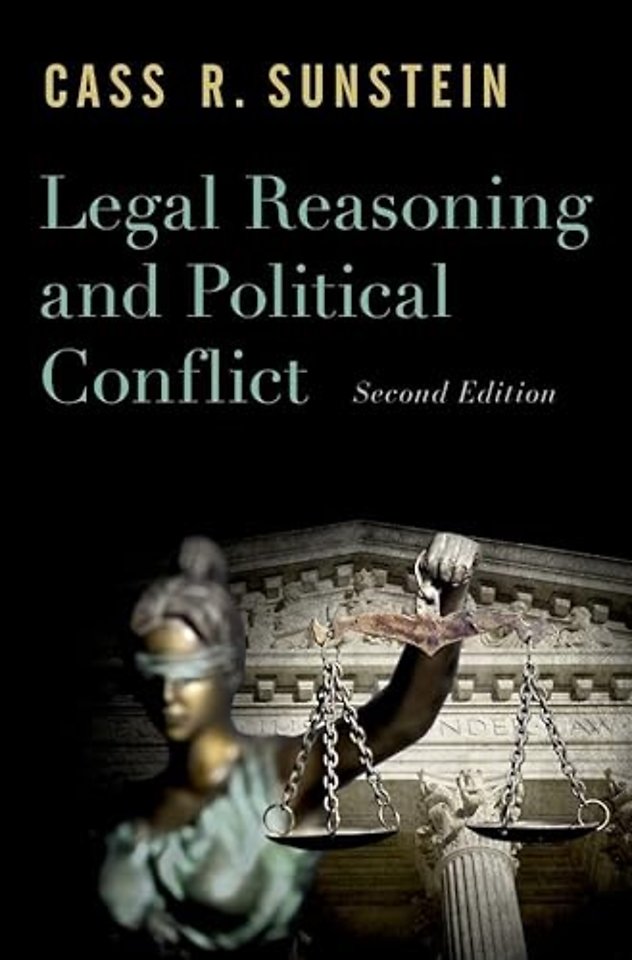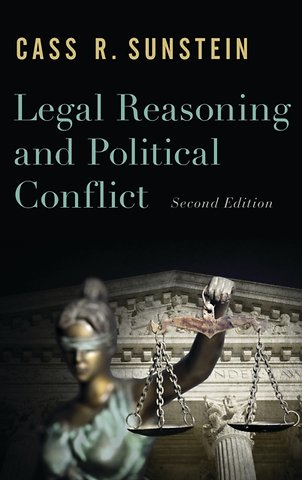


Cass R. Sunstein is hoogleraar en directeur van het Program on Behavioral Economics and Public Policy aan Harvard. Van zijn hand verschenen tientallen boeken, waaronder de bestsellers Nudge en Ruis, over gedragsbeïnvloeding en het nemen van betere beslissingen.
Meer over Cass SunsteinLegal Reasoning and Political Conflict
Gebonden Engels 2018 2e druk 9780190864446Samenvatting
In Legal Reasoning and Political Conflict, Cass R. Sunstein, one of America's best known commentators on our legal system, offers a bold, new thesis about how the law should work in America, arguing that the courts best enable people to live together, despite their diversity, by resolving particular cases without taking sides in broader, more abstract conflicts. Professor Sunstein closely analyzes the way the law can mediate disputes in a diverse society,examining how the law works in practical terms, and showing that, to arrive at workable, practical solutions, judges must avoid broad, abstract reasoning.
He states that judges purposely limit the scope of their decisions to avoid reopening large-scale controversies, calling such actions incompletely theorizedagreements. In identifying them as the core feature of legal reasoning, he takes issue with advocates of comprehensive theories and systemization, from Robert Bork to Jeremy Bentham, and Ronald Dworkin. Equally important, Sunstein goes on to argue that it is the living practice of the nation's citizens that truly makes law.
Legal reasoning can seem impenetrable, mysterious, baroque. Legal Reasoning and Political Conflict helps dissolve the mystery. Whether discussing abortion, homosexuality, or free speech, the meaning of the Constitution, or the spell cast by the Warren Court, Cass Sunstein writes with grace and power, offering a striking and original vision of the role of the law in a diverse society.
In his flexible, practical approach to legal reasoning, he moves the debate over fundamental values andprinciples out of the courts and back to its rightful place in a democratic state: to the legislatures elected by the people. In this Second Edition, the author updates the previous edition bringing the book into the current mainstream of twenty-first century legal reasoning and judicial decision-making focusing on the many relevant contemporary issues and developments that occurred since its initial 1996 publication.
Specificaties
Lezersrecensies
Inhoudsopgave
Introduction
Chapter 1: Reasoning and Legal Reasoning
Chapter 2: Incompletely Theorized Agreements
Chapter 3: Analogical Reasoning
Chapter 4: Trimming
Chapter 5: Understanding (and Misunderstanding) the Rule of Law
Chapter 6: In Defense of Casuistry
Chapter 7: Without Reasons, Without Rules
Chapter 8: Adapting Rules, Privately and Publicly
Chapter 9: Interpretation
Conclusion
Notes
Index
Anderen die dit boek kochten, kochten ook
Rubrieken
- advisering
- algemeen management
- coaching en trainen
- communicatie en media
- economie
- financieel management
- inkoop en logistiek
- internet en social media
- it-management / ict
- juridisch
- leiderschap
- marketing
- mens en maatschappij
- non-profit
- ondernemen
- organisatiekunde
- personal finance
- personeelsmanagement
- persoonlijke effectiviteit
- projectmanagement
- psychologie
- reclame en verkoop
- strategisch management
- verandermanagement
- werk en loopbaan





